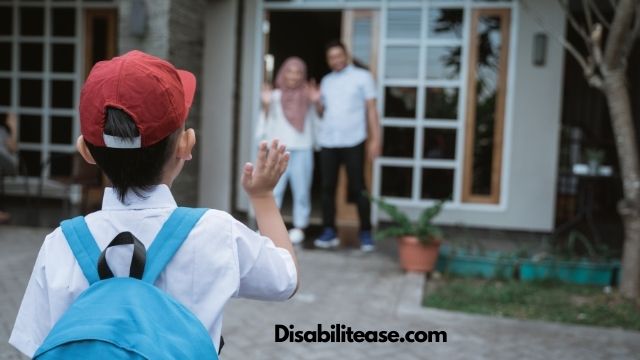Can Dyslexia come and go? Let’s discuss. Dyslexia is known to be the most frequent learning problem across the world.

The International Dyslexia Association defines it as “a unique learning impairment of neurological type.”
Dyslexia is defined by problems with correctly or fluently recognizing words and extremely weak spelling and decoding skills. It is also generally known as a reading disability.
Here is a related article that might interest you on Can Dyslexia Be Passed Down?
Table of Contents
Can Dyslexia Come And Go?
How to Test Dyslexia?
Dyslexia cannot be diagnosed with a single test. A variety of standardized tests are employed to assess a person’s language, intelligence, conduct, and academic abilities. The examinations can be performed by psychologists or education professionals in schools or hospitals.
Is There a Cure?
There is no cure for dyslexia, although a person with this problem can acquire strategies for academic achievement.
Several persons with dyslexia flourish in academic and professional fields after receiving early diagnosis and adequate treatment. Dyslexia, on the other hand, is a permanent disorder, not a developmental delay.
Furthermore, there is no proven method for preventing dyslexia. Nevertheless, since the neurologic issues that produce dyslexia might be linked to prenatal variables, and infants that are premature or have a low weight at birth are more likely to develop dyslexia, it is prudent to comply with the typical pregnancy recommendations.
Dyslexia Is A Struggle
Due to these significant variances, people with dyslexia have a “roller coaster” feeling. They have the ability to do undertakings that are well above the capabilities of their colleagues at times. They may be presented with a task that they are unable to complete in the next moment.
Several dyslexic people refer to this as one walking into a black hole. They require detailed awareness of their learning inability to deal with issues like these. They would be able to forecast success and failure as a result of this condition.
Moreover, they sometimes behave in a wild manner when performing activities. This is to say that their mistakes are not constant.
The Dyslexia Performance Dynamic
The performance of dyslexic people can change almost every day. The ability to read might feel natural to them sometimes. Still, they might be unable to write their name on certain days.
These variances are immensely perplexing not just to the person but also to those around them.
There aren’t many other disabilities that vary in their intensity regularly. A person in a wheelchair stays in it. Moreover, most specialists would call it impossible if the handicapped person starts walking on certain days.

Dyslexics’ performance, on the other hand, varies. Since the person cannot foresee the severity of the symptoms on any specific day, learning to adjust becomes exceedingly challenging.
According to studies, anyone who isn’t suffering from dyslexia might experience its symptoms for a short period. This happens when they are drained, exhausted, or dizzy, and hence their focusing ability is weak during that time.
Also, you have to check out my post on Can Your Dyslexia Flare Up?
Therefore, similar to people with dyslexia, they will not be able to write, read, spell, recall, or focus properly since their equilibrium, coordination, and rhythm would be disrupted. They would even feel scared of heights and falling when being out of balance, etc.
However, this simple example is all that is required to show the familiar concept of inner-ear and cerebellar dyslexia, along with refuting the widely accepted theories about higher-thinking-brain dyslexia.
Options for Dyslexic Patients
Dyslexic people can benefit from a variety of tools and strategies. Recording lectures instead of taking notes, listening to audiobooks instead of reading them, and using computer applications to check their spelling are just a few examples.
Professionals such as those speech and language therapists, teachers, and exceptional education instructors might all be involved in the treatment process of a person suffering from dyslexia.
Most dyslexic children tend to adapt to their learning difficulties and continue in a mainstream school with the right help. However, in some cases, certain people might usually need special education to learn how to read and write.

Hi, my name is Eddie, I am a professional trainer specializing in the elderly population and I’m also a website designer. I love training in the gym, going to the beach, traveling, and having good food.
I combined my love for sport and website designing to make “DisabilitEase” whose purpose is to help elderly and disabled people live a more full and active life, have more fun, and enjoy their unique journey despite any disability.



